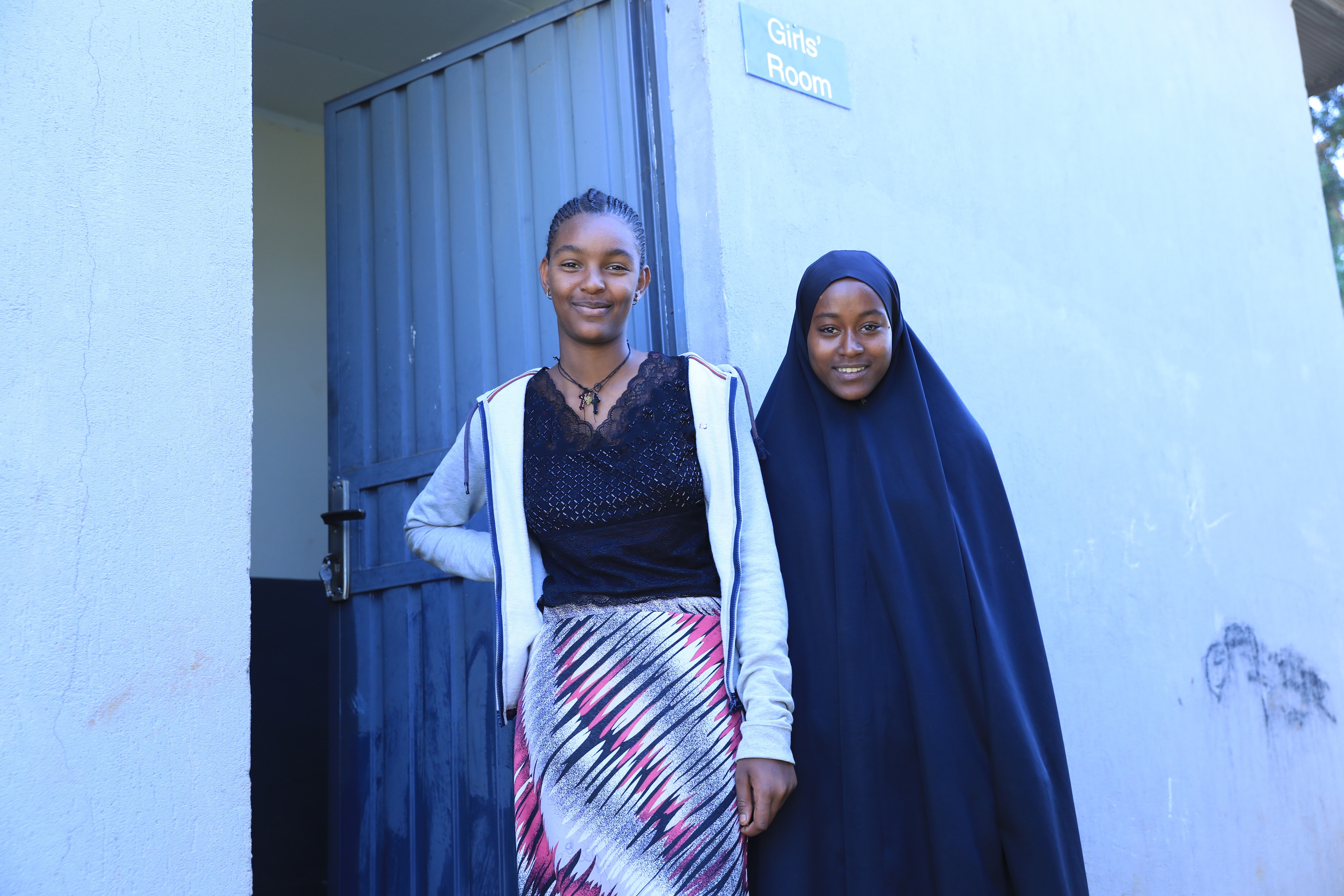Investing in Menstrual Hygiene Facilities Helps Girls Stay in School and Pursue their Education
The lack of adequate menstrual hygiene facilities in schools remains a significant barrier for countless girls, threatening not just their educational opportunities but also their future prospects. According to the UNICEF Menstrual Hygiene Management national report, In Ethiopia, on average, one in 10 girls, which is 11 %, miss school for reasons related to their period. In some rural areas, the rate of missed school days is even higher.
Hasna, a seventh-grade student from Enemour in Central Ethiopia, is one of many adolescent girls facing this daunting challenge. Like her female classmates, Hasna often has to miss school for five to seven days each month during her menstrual cycle and is forced to stay at home due to the unavailability of sanitary pads and proper facilities for hygiene management.
"Monthly, we would miss school because we didn't have a proper place to manage our hygiene during periods," Hasna recalls. "It was so embarrassing and uncomfortable that we couldn't participate fully in our education."
These frequent absences not only affect Hasna’s academic performance but also erode her confidence and self-esteem. The stigma and shame associated with menstruation further complicate the issue, leaving girls like Hasna struggling to feel comfortable and focus on their studies.
Thanks to World Vision Ethiopia’s intervention, Hasna's life, and that of about 56 girls like her, has dramatically changed in their academic performance and attendance since benefiting from the MHM facility in the same school. The construction of a menstrual hygiene (MHM) block at her school has transformed her educational experience. “After the MHM block was built, I’m excited to attend school every day and can fully focus on my education,” Hasna shares.
 The introduction of these blocks improved the number of female student attendance in the school and reduced the amount of absenteeism by 90%, and by now, out of a total of 307 students, 156 girls are attending the school regularly. No longer forced to stay at home during their periods, girls can now manage their menstrual hygiene with dignity and privacy. For Hasna and her classmates, the shame and interruption once caused by menstruation have been replaced with confidence and enthusiasm. They now participate in class discussions and extracurricular activities without missing out.
The introduction of these blocks improved the number of female student attendance in the school and reduced the amount of absenteeism by 90%, and by now, out of a total of 307 students, 156 girls are attending the school regularly. No longer forced to stay at home during their periods, girls can now manage their menstrual hygiene with dignity and privacy. For Hasna and her classmates, the shame and interruption once caused by menstruation have been replaced with confidence and enthusiasm. They now participate in class discussions and extracurricular activities without missing out.
"I'm so grateful for the new facilities," Hasna adds. "I no longer have to worry about my period affecting my education. Now, I give my full attention to learning. It's made a huge difference in my life."
According to the school principal, Sefa Mubarek, the change has been remarkable: “Before the establishment of this MHM room in the school, on average, about 20 girls miss 5-7 days in a month due to their menstrual period, but now Hasna and her friends no longer miss school during their periods. They can manage their hygiene with ease, and this has had a positive impact on their attendance, performance, and overall well-being.”
Beyond improving their educational outcomes, the MHM block has helped break down the stigma surrounding menstruation, fostering a more inclusive school environment for girls.
Keeping girls in school has significant ripple effects on society. It reduces rates of early marriage, breaks the cycle of poverty, increases economic participation and empowerment as well as improves health outcomes, and contributes to overall family well-being. Investing in girls' education means investing in communities and nations.
By Samuel Zerihun, Communications Coordinator (Education), World Vision Ethiopia